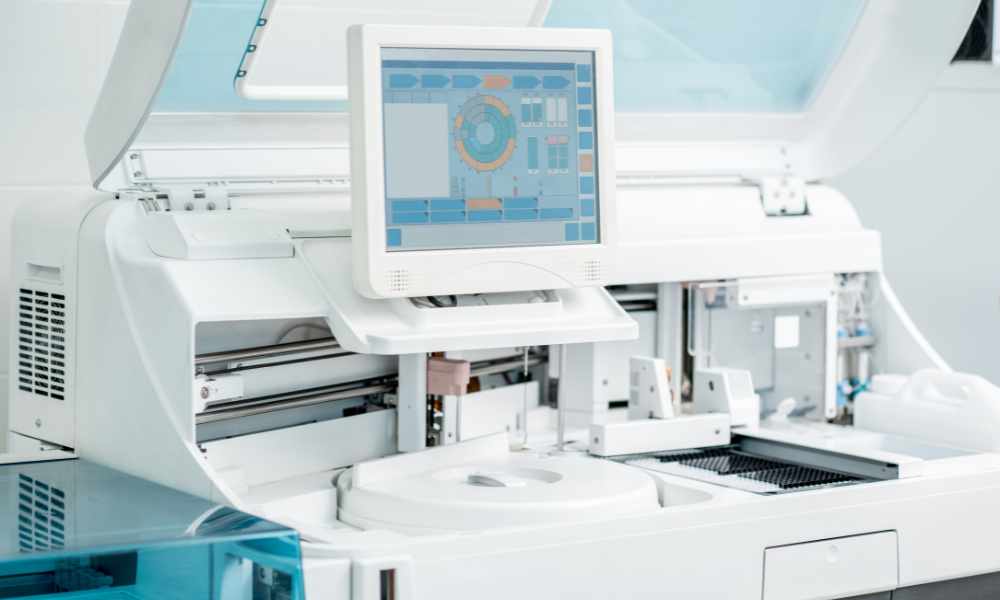Advancements in Medical Device Technology: Paving the Way for Enhanced Healthcare
Advancements in Medical Device Technology: Paving the Way for Enhanced Healthcare

In the ever-evolving landscape of healthcare, technological innovations play a pivotal role in improving patient outcomes and transforming medical practices. One such area of continuous development is medical devices. These devices, ranging from diagnostic tools to life-saving implants, are integral to modern healthcare. This article explores the recent advancements in medical device technology, highlighting their impact on patient care and the overall healthcare system.
The Role of Medical Devices in Modern Healthcare
Medical devices encompass a broad spectrum of tools and equipment designed to diagnose, monitor, and treat various medical conditions. From simple thermometers to sophisticated imaging devices and implantable devices, these technologies contribute significantly to disease prevention, early detection, and personalized treatment plans.
Integration of Artificial Intelligence in Medical Devices
One of the most notable advancements in medical device technology is the integration of artificial intelligence (AI). AI has empowered medical devices to process vast amounts of data quickly and accurately, leading to improved diagnostic accuracy and treatment outcomes. Devices equipped with machine learning algorithms can analyze complex medical data, assisting healthcare professionals in making more informed decisions.
For instance, AI-powered diagnostic tools can analyze medical images, such as X-rays and MRI scans, to detect abnormalities with high precision. This not only expedites the diagnostic process but also reduces the risk of human error, ultimately benefiting patient care.
Wearable Medical Devices and Remote Patient Monitoring
The rise of wearable technology has paved the way for innovative solutions in healthcare. Wearable medical devices, such as smartwatches and fitness trackers, are now equipped with advanced sensors to monitor various health parameters. These devices allow individuals to track their physical activity, heart rate, sleep patterns, and more, providing valuable data for both users and healthcare professionals.
Moreover, wearable devices enable remote patient monitoring, a critical aspect of modern healthcare, especially in the context of chronic disease management. Patients can transmit real-time health data to their healthcare providers, facilitating proactive interventions and reducing the need for frequent hospital visits.
Implantable Medical Devices and the Internet of Things (IoT)
Implantable medical devices have witnessed significant advancements, enhancing the quality of life for patients with chronic conditions. Pacemakers, insulin pumps, and neurostimulators are just a few examples of implantable devices that leverage cutting-edge technology to monitor and regulate physiological functions.
The Internet of Things (IoT) has further revolutionized the capabilities of implantable medical devices. These devices can now communicate with external systems, allowing healthcare professionals to remotely monitor and adjust settings as needed. This connectivity not only improves patient care but also ensures a more seamless and personalized healthcare experience.
Challenges and Considerations in Medical Device Development
While the rapid evolution of medical device technology brings numerous benefits, it also presents challenges and ethical considerations. Data privacy, cybersecurity, and regulatory compliance are critical aspects that must be addressed to ensure the safety and reliability of these devices. As technology continues to advance, the healthcare industry must stay vigilant in addressing these concerns to maintain the trust and well-being of patients.
The Future of Medical Devices
Looking ahead, the future of medical devices appears promising, with ongoing research and development pushing the boundaries of innovation. Miniaturization, improved battery technologies, and enhanced biocompatibility are areas of focus that will likely lead to the development of more compact, efficient, and patient-friendly medical devices.
Additionally, the convergence of medical devices with other emerging technologies, such as nanotechnology and 5G connectivity, holds immense potential for further advancements. These synergies could result in faster data transmission, more precise treatments, and improved overall patient care.
Conclusion
In conclusion, the continuous evolution of medical device technology is reshaping the landscape of healthcare. From the integration of artificial intelligence to the proliferation of wearable and implantable devices, these advancements are enhancing diagnostic accuracy, patient monitoring, and treatment outcomes. As we navigate the future, addressing challenges and ethical considerations will be crucial to ensuring the responsible development and deployment of medical devices. With ongoing research and collaboration between technology experts and healthcare professionals, the medical devices of tomorrow hold the promise of providing even more personalized and effective care for patients worldwide.




